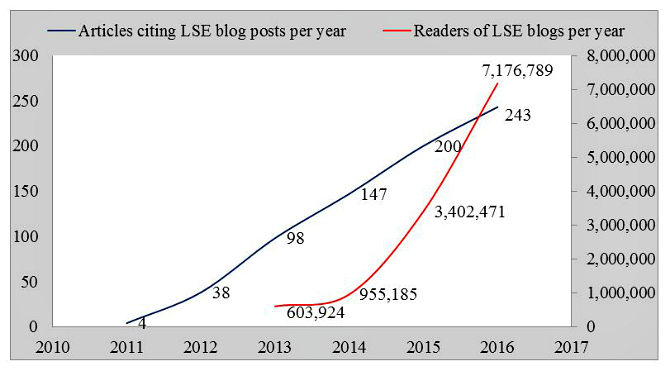Managing Editor Sierra Williams presents a round-up of popular stories from around the web on higher education, academic impact, and trends in scholarly communication.
This week students from around the country have gathered to protest against a growing police presence on university campuses. Following a series of protests last week, the University of London took out a six-month injunction against “occupational protest” by students around the Senate House area. In the London Review of Books blog, Senior Lecturer at SOAS, Brenna Bhandar, reflects on how these recent developments are connected to the wider trends of marketisation in the university. In her piece, A Right to the University, she writes:
The idea that university managers can treat our campuses like the kinds of property normally protected by injunctions from trespass – landed estates, private houses, private corporations – is a symptom of the extent to which neoliberal ideology is now embedded in our universities, along with the political repression that inevitably accompanies privatisation.

Another legal battle making the rounds this week has been the escalation of take-down notices issued by publishing corporation Elsevier to remove copyrighted articles from academic networking site Academia.edu. Scholarly Kitchen featured a piece which wonders whether this is The End of an Era for Academia.edu and Other Academic Networks? Highlighting the complexity of the current academic communication economy, author Michael Clarke notes,
With Elsevier’s acquisition of Mendeley earlier this year and recent escalation of take down notices to Academia.edu, we appear to have moved beyond the nascent phase (a more cynical observer might call it the “Napster phase”) of such networks and into a phase where they must be more rigorous with regard to content rights.
…this does not mean Academia.edu and ResearchGate will have to close up shop…This may even lead to services and business models designed around institutional customers with workflow solutions tailored to departments, laboratories, classrooms, and other workgroups. Such solutions may actually be more lucrative than selling analytics about the activities a self-selected user base to third parties.
Reactions to Elsevier’s actions have elicited criticism from many academics looking to share their articles more widely. But Rex from Savage Minds issues the caution, Don’t blame Elsevier for exercising the rights you gave them:
The world of scholarly communication is deeply screwed up. Most people don’t notice, most of the time. But there are a lot of ways to make it less screwed up. You can publish in fully open access journals. You can publish in green OA journals that allow you to post preprints of your work. You can alter the terms of your author’s agreement (many authors do this successfully) to make your work more accessible. Or if you are on the road to tenure or a job, you can just say “grub first, then ethics” and publish away, knowing that you’ve made a deal with the devil. I understand that sometimes these deals have to be made. But there’s one thing I don’t think it is fair for us to do: complain about the way the world is because we lived under the impression that it was something else. Especially if we are actively engaged in reproducing it.
The Atlantic also picked up on the theme of open access and tensions on scholarly services this week in a piece on JSTOR’s Hidden Power. Alan Jacobs argues that in their quest for wider access and distribution of scholarly material, academics may have to confront some uncomfortable habits of their own. As academic communication moves towards disaggregation, the value of services like JSTOR become more apparent, namely, directing students to a one-stop-shop for reliable sources, without necessarily having to teach them how to evaluate for themselves. Academics who may otherwise be supportive of open access initiatives may be unwilling to confront this time-saving workaround. Jacobs writes:
And so, no matter how appealing the idea of open access is, and how consonant with the core values of academic life, it may run into obstacles other than the one usually cited, which is greed. Those who want to make money from academic publications may be less of a problem, in the long run, than academics who can’t resist the temptation to offload some of what they think of as—and what may often be fairly described as—the drudgeries of teaching.
And the final pick for this week comes from Wired with a controversial heading: Forget Academia. Startups Are the Future of Knowledge [recently updated to the more amenable: Let’s Bring The Polymath — and the Dabblers — Back]. Samuel Arbesman notes that while traditional scholars were rewarded and recognised for being generalist, interdisciplinary thinkers, academia today is no longer able to facilitate such vital interactions for solving complex issues. He writes,
Where are all the generalists, anyway? They’re not really thriving in academia; for the most part, they’ve gone elsewhere to find their place, and one of these places is business. In the realm of data science at least, the startup world is beating academics at their own game when we consider examples such as Google and Facebook or Bit.ly and Misfit Wearables.
And on that challenging and contentious note, we conclude this week’s Impact Round Up.







